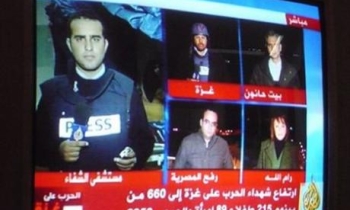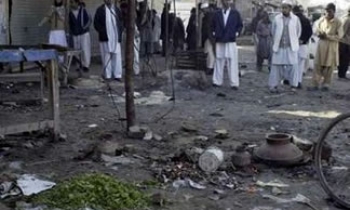DUBAI: The controversy surrounding cartoons of the Prophet Mohammed published in several European newspapers could disrupt free trade negotiations between the European Union and the oil-rich Gulf Cooperation Council (GCC) states, reports said on Monday.
The Gulf News quoted a Saudi official involved in the talks as saying a final free trade agreement was due to be signed in December 2005 but had been delayed due to "minor technical difficulties".
"At this stage we still see it as consumer boycott action but if the protests continue, inevitably the issue will have to be brought into discussions. The longer it takes to resolve these technical difficulties and the longer the 'cartoon crisis' continues the more chance there is of final negotiations being affected," the official told the paper.
The GCC and the EU signed a framework economic cooperation agreement in 1988 but have so far failed to agree to a free trade deal.
The official, who spoke on condition of anonymity, told Gulf News that the United Arab Emirates (UAE) is by far the largest trade partner with the GCC with over 80 billion euros ($95 billion) worth of goods exchanged last year.
He added that it is too early to precisely gauge the economic fallout of the Danish product boycott.
"It is too early to tell. We are obviously expecting some effect but I believe overall trade with the EU is too great to be heavily affected," the Gulf News quoted him as saying.
GCC states - Saudi Arabia, Oman, Qatar, Bahrain, the UAE and Kuwait - and other Arab and Muslim states have unofficially boycotted Danish products after a Danish paper first published the cartoons last September.
The paper also quoted EU Ambassador to Saudi Arabia and head of the EU delegation for the GCC, Bernard Savage, as saying the crisis so far had not affected free trade negotiations between governments.
"Our hope is that the boycott and tensions will be defused. We have people working to achieve this aim," he pointed out.
EU foreign policy chief Javier Solana is to arrive in Saudi Arabia on Monday and later go to Jordan, Egypt, the Palestinian Territories and Israel to try to calm Muslim feelings about the cartoon row.
A Christian magazine in Norway reprinted the cartoons in late January after they were initially published in a Danish newspaper on Sep 30. One of the cartoons depicted the prophet as a terrorist.
Since then, other European publications, including Germany's Die Welt, Italy's La Stampa and Spain's El Periodico, have republished the images in a show of support for freedom of the press, but the moves triggered worldwide condemnation by Muslims.









